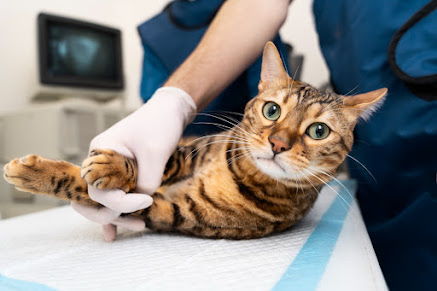When Your Mouse Gets Sick: A Guide to Caring for Your Furry Friend
Introduction
As a responsible pet owner, you've done your research, made your decision, and brought home a delightful companion - a mouse. These tiny creatures may seem low-maintenance, but like any living being, they can fall ill. Just like with any pet, when your mouse gets sick, it's essential to recognize the signs and take prompt action to ensure their well-being. In this article, we'll discuss the steps you should take if your mouse falls sick, common illnesses to be aware of, and ways to prevent future health issues.
Recognizing Signs of Illness:
Mice, being small animals, are masters at hiding signs of illness. However, with a keen eye and attentive care, you can spot potential problems early on. Some common signs of illness in mice include:
- Lethargy: A noticeable decrease in activity and a lack of interest in usual play or exploration.
- Reduced appetite and weight loss: Mice are known for their hearty appetites, so a sudden loss of appetite is a cause for concern.
- Labored breathing: Watch for rapid, shallow breaths or wheezing.
- Hunched posture: If your mouse is staying huddled in one place and seems uncomfortable, it could indicate pain or discomfort.
- Unkempt appearance: A sick mouse may not groom itself properly, leading to a messy or disheveled appearance.
- Discharge from eyes, nose, or mouth: Unusual discharges can signal an infection or respiratory problem.
- Changes in stool or urine: Observe any diarrhea, excessive wetness, or discoloration.
Seeking Veterinary Care:
At the first sign of illness, it's crucial to seek veterinary care for your mouse. Regularly consult an experienced veterinarian familiar with small animals or, ideally, an exotic pet specialist. Mice can deteriorate rapidly, so immediate medical attention can be critical in preventing further complications.
Remember that veterinary visits should be part of your routine pet care, even when your mouse is healthy. Regular check-ups can help catch potential health issues early and ensure your pet's well-being.
Quarantine
If you have multiple mice, and one of them appears sick, promptly isolate the affected mouse to prevent the spread of disease. Set up a separate enclosure with food, water, bedding, and hiding spots to provide a comfortable and stress-free environment. Properly wash your hands and change your clothes after handling the sick mouse to avoid contaminating healthy ones.
Administering Care at Home:
While waiting for your vet appointment or during treatment, you may need to administer care at home. Always follow your veterinarian's advice, as they will provide specific instructions tailored to your mouse's condition. Some general guidelines for home care include:
- Maintaining proper hygiene: Ensure your mouse's enclosure is clean and dry. Dirty bedding can worsen health issues or lead to new infections.
- Providing a balanced diet: Offer a diet rich in fresh vegetables, fruits, grains, and a commercial mouse food mix. A balanced diet is vital for supporting the immune system.
- Encouraging hydration: Offer fresh water daily and monitor your mouse's water intake. Dehydration can exacerbate health problems.
- Regulating temperature and environment: Mice are sensitive to extreme temperatures, so keep their enclosure in a climate-controlled area away from direct sunlight and drafts.
Common Mouse Illnesses:
Understanding some common mouse illnesses can help you identify potential problems and seek appropriate care. Some prevalent health issues in mice include:
- Respiratory infections: Mice are prone to respiratory infections, which can be caused by various factors, including environmental stress and bacteria. Watch for signs of labored breathing, sneezing, or coughing.
- Gastrointestinal issues: Diarrhea and bloating can be symptoms of gastrointestinal problems. A sudden change in diet or contaminated food may be the culprit.
- Tumors: Mice are susceptible to developing tumors, especially as they age. These may be benign or malignant, so it's essential to have any lumps or bumps examined by a vet.
- Dental problems: Overgrown teeth can cause mouth sores, difficulty eating, and weight loss. Regularly provide appropriate chewing materials to help prevent dental issues.
Preventing Illness and Promoting Well-being:
Prevention is always better than cure, and there are several ways to maintain your mouse's well-being and reduce the risk of illness:
- Hygiene and cleanliness: Keep your mouse's enclosure clean and regularly wash their food and water dishes.
- Appropriate diet: Feed your mouse a balanced diet, including fresh foods, commercial food mix, and occasional treats.
- Mental and physical stimulation: Provide toys, tunnels, and opportunities for exploration to keep your mouse mentally and physically engaged.
- Avoiding stress: Minimize loud noises, sudden movements, and excessive handling, as these can stress your mouse and weaken their immune system.
Conclusion
Mice can make delightful and charming pets, but their well-being depends on attentive care and prompt action when they fall ill. Recognizing the signs of illness, seeking veterinary care, administering proper home care, and preventing future health issues are all essential aspects of responsible mouse ownership. By following these guidelines and staying vigilant about your mouse's health, you can ensure they live a happy and healthy life by your side.






